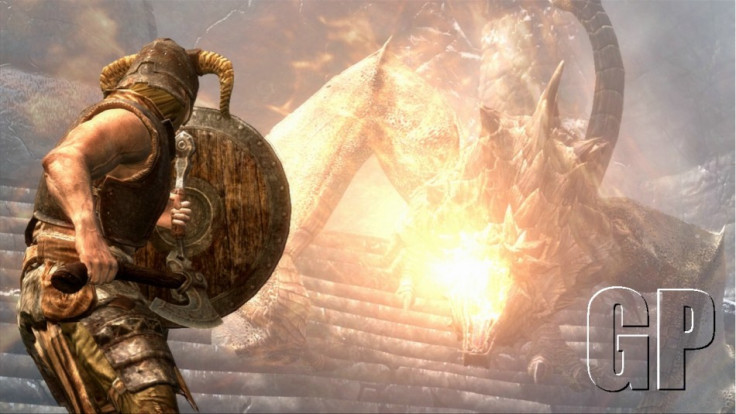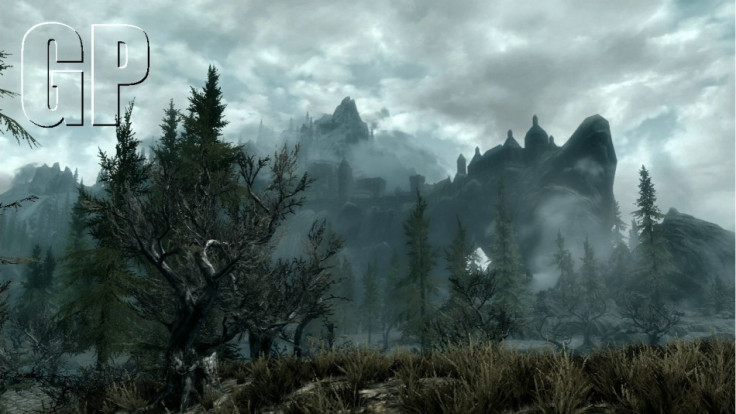The Elder Scrolls V: Skyrim Review
"The Elder Scrolls V: Skyrim" is a beautiful, immersive epic that builds on its predecessors' strengths to offer gamers one of the most in-depth and engaging role-playing experiences on the market.

It is once again set in the realm of Tamriel, and at first glance fans may be forgiven for thinking little has changed since the game's predecessor, "The Elder Scrolls IV: Oblivion." The game has the same first-person view and at its core, the same open world exploration mechanic common to most of Bethesda Softworks' recent titles. But despite opening appearances, all this is simply the starting point of Skyrim, which builds on its predecessor's strengths, adding several new features and design tweaks that make it pretty much the best role-playing game on the market this Christmas season.
Starting off with the basics. The game is set directly after the events of Oblivion, taking you to the northern realm of Skyrim. Home of the Nords, a people not too dissimilar to Vikings, the realm is cold and mountainous, with large pine trees and snow covered slopes dominating the horizon.
The story sees you explore the frozen landscape weaving in and out of the ongoing war between the Imperial loyalists and rebel Stormcloud warriors. Despite the importance of the war, the main crux of the plot explores the return of dragons and your role as dragon born -- a special type of power that sets you apart from the normal folk.
As is the case with most Elder Scrolls games, while the main plot is important in the sense that it gives you an initial reason to venture forth into the wilderness, the vast majority of your time will be spent searching and enacting quests outside of it. The beauty of Skyrim is that it embraces the notion of player freedom, allowing and often rewarding the player for taking the road less travelled. Bethesda has done a fantastic job of littering Skyrim with all manner of hidden dungeons, bandit filled keeps and small hamlets, all bristling with their own gossip and quests. The great thing about Skyrim is that while some of these quests may seem trivial and easy at first, they can soon turn into mini-epics in their own right.
A particularly fun quest we discovered early on in the game appeared after we were forced to run into what appeared to be a cave to avoid the unwanted attention of a rabid sabretooth. Once in the cave we were met by a young nord warrior who went on to ask for our help killing a necromancer.

Luckily, while the vast open world mechanic that made The Elder Scroll's series famous has remained, Bethesda has made several improvements to the game's character levelling and combat systems.
In Skyrim, like Oblivion, characters' abilities level up organically, with the stat rising the more you use it. Use magic as your primary weapon and your destruction skill will rise, wear heavy armour the whole time and your heavy armour skill will go up. However, unlike Oblivion, which offered no freedom for skill customisation, Skyrim refines the system adding the perk and stat mechanics.
In Skyrim when you level up, you will be offered two key choices. The first will see you choose whether you wish to raise your magicka, health or stamina. While the second and more interesting, will see you add a perk. Perks are points within specific skill branches that increase or add to existing powers. For instance, within the destruction tree, players can add perks to increase fire spells' damage, or reduce the cost of certain spell groups. The mechanic, while small, offers player's a sense of control over their character that in many ways had been lost in Oblivion.
Like the character levelling system, Bethesda has likewise tweaked Skyrim's combat to offer players more freedom. In Skyrim players have full control over both their characters hands, with the right and left triggers activating whatever spell or weapon is equipped. This means that players can adapt their armoury to suit their needs. Those wishing to go berserk can equip to a weapon in each hand, dual wielding them for maximum chaos but at the expense of the ability to block. The more cautious can go with the tried and true weapon and shield mechanic. While the more arcane inclined can beef-up, wielding a spell in each hand.
With an emphasis on freedom, Skyrim's combat is a reflection of the game as a whole. The ability to customise and arm your character as you choose, reflects the game's go where you want when you want approach.

Yet despite all its strengths, it is worth noting that Skyrim has also inherited several of its predecessors' flaws. Though most are small annoyances rather than deal-breakers, the game does suffer from the same AI hiccups and occasional graphical glitches that have plagued all Bethesda's recent games. These hiccups can present themselves in a variety of ways. Sometimes you'll be moving through a lush, beautifully rendered forest only to be confronted by an inexplicable flying rock, or beast running 20-metres over head.
While these glitches are annoying in themselves, breaking the otherwise immersive experience, they are minor when compared to the game's AI troubles. While generally ok, the game's AI can be insanely frustrating. Occasionally you'll be tasked with a quest that requires you protect a particular NPC, only to find that the character has a death wish, running into the same trap or horde of unbeatable enemies over and over and over again.
Luckily such occurrences are few and far between and even when they do occur, serve only to annoy rather than ruin the entire experience.
Summing up, Skyrim is awesome. The game retains the massive open world freedom of its predecessors offering a solid, immersive experience that will draw you in and make you want to explore the world outside of the main plot's path. Fans returning to the series will love the new entry, though the frequent exposition by NPCs and host of books and texts littering the world leave the game open and friendly to newcomers as well.
The Good
- Deep immersive world ripe with hidden treasures give a true incentive to explore
- Re-worked combat and levelling-up system refine the Elder Scrolls experience
- Slaying dragons is awesome
The Bad
- Occasional glitches in the AI and graphics can be an annoyance
Overall
4.5/5 Stars
© Copyright IBTimes 2025. All rights reserved.





















